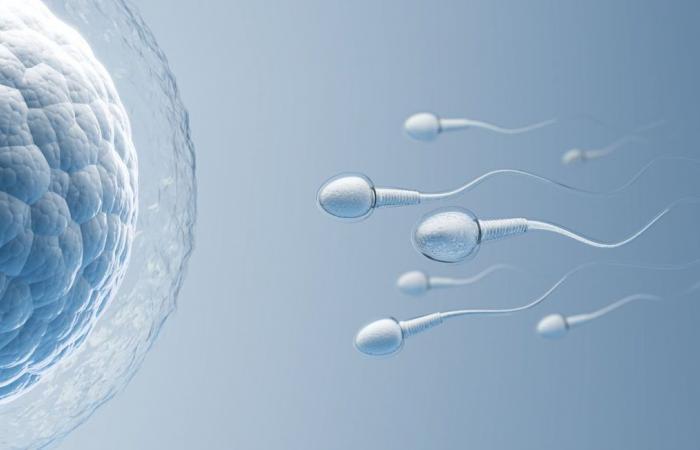An exploding demand… and a decline in donations. For the first time since the authorization of PMA (medically assisted procreation) for single women and female couples in 2021, the number of sperm donors has declined in 2023. It has gone from 714 candidates in 2022 to 676 (while this donation is open to all men aged 18 to 44). This is what emerges from the data around gamete donation revealed this Tuesday, exclusively for 20 Minutesby the Biomedicine Agency. And that is clearly not enough.
“At least 1,400 donors per year, twice as many as at present, would be needed to meet the strong demand,” says Marine Jeantet, Director General of the Biomedicine Agency.
Demand increased 8.5 times
At the same time, the number of requests for medically assisted procreation (MAP) has exploded since 2021. “Before, we were self-sufficient, since only 2,000 people in heterosexual couples used MAP each year, and they did not all need sperm,” emphasizes Marine Jeantet. Since the law was amended, demand has increased 8.5-fold.”
From 2021 to 2023, nearly 35,000 requests for first consultation for medically assisted procreation with sperm donation from couples of women and single women were recorded, including nearly 13,000 for the year 2023 alone. Knowing that a sperm donation can generate up to ten births maximum.
A gap between supply and demand
The gap is therefore widening between supply and demand, and it is not likely to improve. To meet the needs, the Biomedicine Agency uses its stock of gametes from anonymous donors. But with the lifting of donor anonymity in 2021 (the person resulting from a donation can request, upon reaching the age of majority, the identity of the donor), the agency will no longer be able to use these “old” donations from March 2025.
In March 2023, this “old regime” stock amounted to 90,000 straws (a small tube in which frozen sperm is stored). It was only 32,000 in December. “In nine months, we used almost two thirds of the stock.” On the other hand, the “new regime” stock consisted of 27,000 straws in March 2023 and rose to 52,000 in December 2023. “The old stock decreased faster than the new one was built up,” concludes Marine Jeantet. With a significant fact to take into account: several straws of sperm are needed to carry out a single MAP attempt, and it often takes several attempts before a birth is achieved.
Single women and couples of women resorting to medically assisted procreation must go through public establishments, which are few in number, and so a traffic jam is gradually forming. In 2023, the average time for treatment for medically assisted procreation with sperm donation was 15.5 months at the national level.
A lack of information
But then, how can we explain this low number of donors? Firstly, by a lack of knowledge. “Almost everyone knows that PMA is open to single women and female couples, but we forget that to do it, we need sperm,” recalls Marine Jeantet. While campaigns for blood donation or organ donation have existed for more than ten years, those encouraging gamete donation are only 2 or 3 years old.
A barometer* carried out by the Biomedicine Agency in May 2024 shows that less than one in four French people (23%) surveyed consider themselves well informed about gamete donation. In the same survey, two thirds of respondents (66%) believe that they need more information and awareness, particularly on the lack of donations and the number of people waiting, but also on how the donation will be used.
Men give less than women
Another possible obstacle to donation, as mentioned above: the lifting of anonymity, which would prevent 33% of the men surveyed from donating their gametes. An argument that does not convince the director of the biomedicine agency. “We did not observe a drop in donations when anonymity was lifted in 2021. Donors know that access to one’s origins does not constitute parenthood. The law is very clear.”
The child cannot actually demand that his or her parent recognize him or her. “Often, they just need to know who they look like or ask questions about their genetic predispositions,” assures Marine Jeantet.
Finally, one last explanation: when it comes to donations, men are less generous than women. “Whether it concerns the donation of blood, marrow, organs or, here, gametes, men always give less than women,” explains the director of the biomedicine agency.






